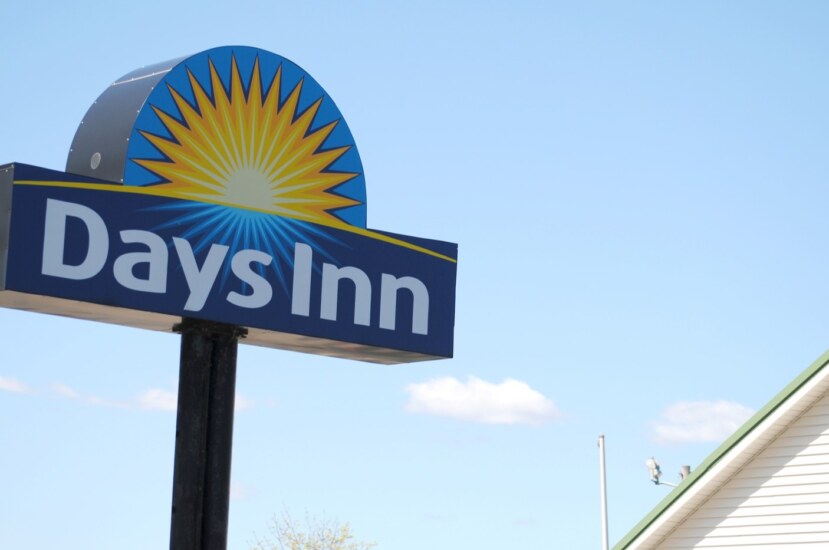
Days Inn was one of the first chains to welcome Patels as franchisees. | Photo: Shutterstock
Allowing more immigrants into the U.S. labor pool would undoubtedly ease the chronic shortage of talent available to hospitality employers, experts agree. No one may know it more than the Asian-Americans who now own 60% of the nation’s hotels, most of them just a generation or two removed from their families’ arrivals from India.
Often sporting the surname Patel, the innkeepers found a foothold in the U.S. during the 1980s and early ‘90s. Though unfamiliar with running hotels, they saw the For Sale signs posted in front of rundown mom-and-pop motels along the smaller highways of the South. The properties had lost their clientele to shiny new chain inns that were popping up in more desirable locations.
The one-offs’ dismal state brought their price down to a level the Patels could afford. The new arrivals bought the places and rejuvenated them, often doing the rehab work themselves. Through sweat equity, they prospered and found themselves being pursued as prospective franchisees by Days Inn, Best Western, Choice Inns and other rapidly expanding lodging chains.
They also encountered overt prejudice. Telling disparaging Patel stories at industry gatherings was considered perfectly acceptable, even by top chain officials. Some brands refused to deal with the Patels. Some suppliers, too. Financing was a problem, often overcome by welcoming family members from India as new equity partners.
Unaccepted by the industry’s mainstream, the immigrants formed their own trade group, the Asian-American Hotel Owners Association, or AAHOA. From a handful of original members, the group has grown into a powerhouse of 20,000 members.
Subsequent generations have often followed their elders, the original immigrants from India, into the family lodging business. Once relegated to the motel sector, the Asian-American lodging community now owns 3 of every 5 lodging properties in the U.S., according to a study conducted by Oxford Economics.
Prejudice still exists, overtly and covertly, says Laura Lee Blake, AAHOA’s president and CEO. But it’s not what it was. “There are so many Patels in the hotel industry now that they’re not seen as a minority,” she said during an interview with Restaurant Business.
Instead, a big focus of the group today is what she calls “fair franchising,” or ensuring the partnership between franchisor and an AAHOA member doesn’t tip unduly in the chain’s direction. In day-to-day terms, that often entails resisting the imposition of new fees on the franchisees, like cybersecurity surcharges on transactions, or a “green fee,” where franchisees pay for verification they’re maintaining a chain’s efforts to be more environmentally responsible.
With success and changes in the market came new problems, not the least of them being labor. According to the American Hotel & Lodging Association, the U.S. hotel industry is operating with about 1.4 million job vacancies, on top of the 8.6 million positions that have been filled.
“Our members welcome any solution to the labor shortage,” says Blake. As in the restaurant trade, automation is one of the aids being readily adopted.
AAHOA is also taking a hard look at how changes in U.S. immigration rules could ease the crunch. Because of their backgrounds, “I think they understand more than the rest of us do about the difference that would make,” Blake says.
The group has successfully pressed the federal government to expand the number of H-2B visas that are granted annually. The work permits allow non-citizens to take seasonal jobs on a temporary basis, like positions at a resort inn. Last month the U.S. Department of Homeland Security agreed to raise the number issued in the fiscal year ending 2024 by 64,716.
AAHOA is lobbying for the release of more H-2C visas, or temporary work permits for low-skilled workers from outside of the United States.
But the visa programs would only boost the labor pool by 85,000 workers, or a mere drop in the bucket when a hunt is on for 1.4 million additional workers.
AAHOA would rather see comprehensive immigration reform, with steps that would allow migrants to work soon after arriving, instead of having to wait months or years for approval to take a job. “We need to get a commonsense approach,” says Blake. “How can we allow these people to work?”
Blake notes how different things are in Canada, which also has a large population of innkeeping Patels. She recalls how Canada’s lodging business approached specific foreign nations in hopes of pulling workers to America’s northern neighbor. The issue was getting the workers out of their homeland, not allowing them into a new home.
Might the United States ultimately adopt a similar open-door mindset as a result of comprehensive immigration reform?
AAHOA is certainly going to keep trying, said Blake. She adds, “I’m an eternal optimist.”
Members help make our journalism possible. Become a Restaurant Business member today and unlock exclusive benefits, including unlimited access to all of our content. Sign up here.






Leave a comment